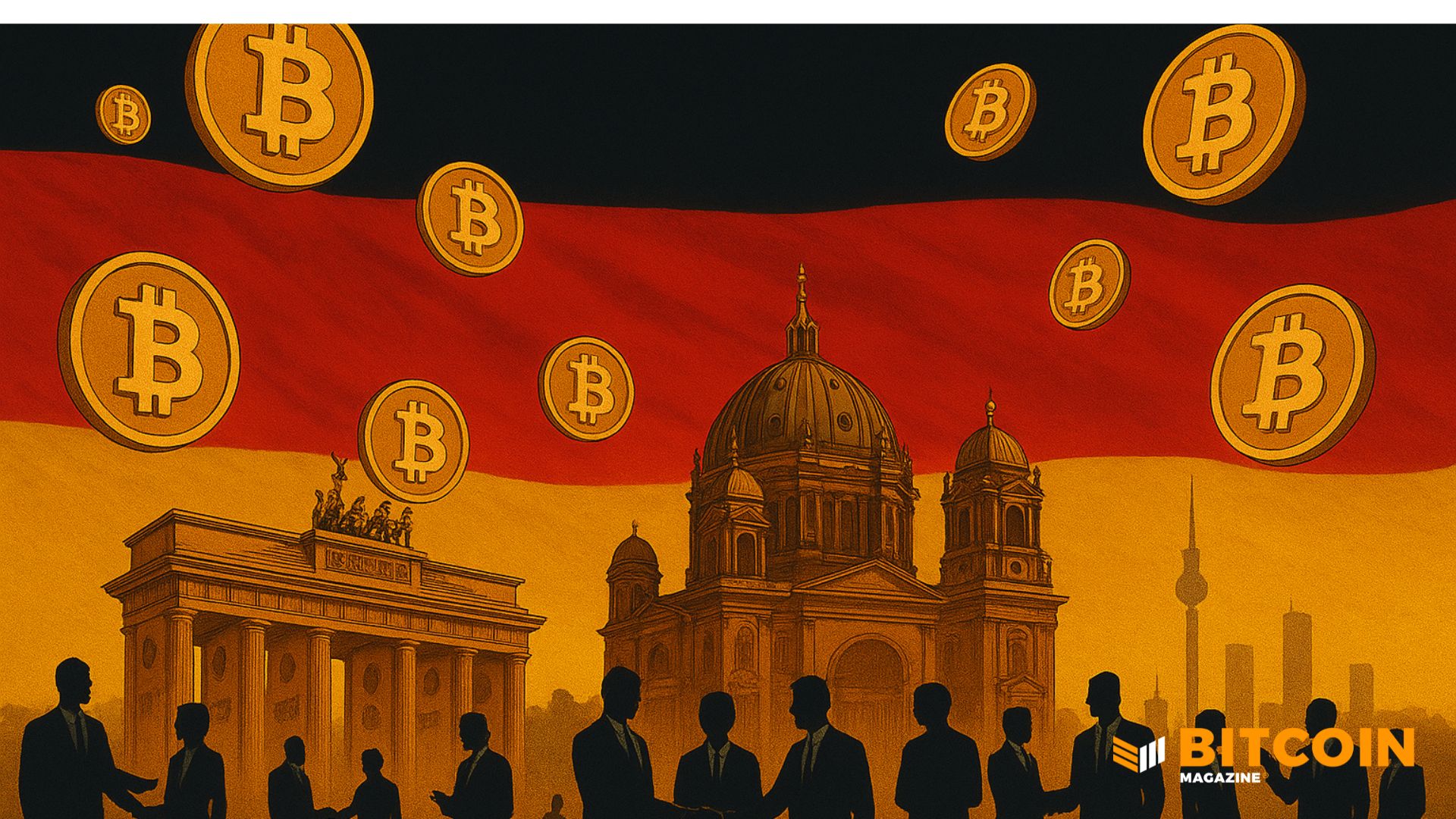New Crypto Bill In France Targets A State Backed Bitcoin Reserve
The financial economy of France is on the cusp of a major transformation as the country is gearing up to adopt a strategic Bitcoin Reserve. Lawmaker Éric Ciotti of the Union of the Right and Center (UDR) party has proposed a bill to acquire and hold up to 2% of the cryptocurrency’s total supply.
According to recent reports, this move positions France as a pioneer in digital finance, potentially becoming the first European country to include BTC in its national reserve. Via the adoption of a Bitcoin reserve, France intends to reduce its dependence on traditional currencies and bolster its financial independence.
France to Embrace Strategic Bitcoin Reserve
The UDR party, led by French politician Éric Ciotti, has introduced a bill to create a Bitcoin strategic reserve, with a goal of acquiring and storing 420,000 BTC within the next seven to eight years. One of the main goals of this initiative is to strengthen the country’s financial sovereignty by establishing Bitcoin as a form of “digital gold” for a future strategic reserve asset to reinforce the country’s economic stability.
The bill includes establishing a Public Administrative Establishment (EPA) to administer and monitor the Bitcoin reserve, similar to what exists for France’s gold and foreign exchange reserves. The funding mechanism for the reserve would be multi–faceted, depending on harnessing excess nuclear and hydroelectric energy to create state-run Bitcoin mining operations while also incentivizing existing Bitcoin mining operators in the area through a tax concession.
Though it is a long shot, this bill will face an uncertain road ahead due to unknown support from French lawmakers. However, if the proposal passes, it may serve as a trial balloon for other European countries to implement similar plans for cryptocurrency reserves.
Key Proposals Under the UDR Bill
Notably, the UDR bill outlines several measures to bolster France’s Bitcoin reserve and financial independence. The lawmaker intends to make France follow the footsteps of the US, with the country using confiscated BTCs to fund the reserves. He also recommended daily BTC purchases to bolster the treasury plan. The proposal noted,
“Allocation of a quarter of amounts collected through the Livret A and LDDS savings schemes to daily BTC purchases on the secondary market (approximately 15 million euros per day, or 55,000 BTC per year).”
Further, the bill proposes to allow citizens to pay taxes using cryptocurrency. Also, the party intends to recognize euro-denominated stablecoins as a viable alternative to traditional payment networks, aligning with the EU’s goal to reduce dependence on U.S.-dominated fintech.
A Bold Move Against Digital Euro
In addition to the strategic Bitcoin Reserve proposal, the UDR party has taken a bold stance against the European Central Bank’s potential launch of a central bank digital currency (CBDC). The National Assembly has approved a resolution that opposes the implementation of the digital euro, indicating the potential loss of privacy and economic freedom.
Assembly members argue that a digital euro, issued and managed by a central authority, would take away the financial independence of citizens and allow governments to be aware of, and potentially seize, their bank accounts.
The resolution is aligned with a proposal from Éric Ciotti and the members of the Union of the Right for the Republic that encourages the French government to reject the European Commission’s draft regulation establishing a digital euro to support euro-stablecoins instead, as well as encouraging more national investment into crypto-assets to enhance the financial sovereignty of France.
This action, the Assembly argues, would take steps to protect “fundamental individual rights,” and to maintain monetary sovereignty through the trend towards a digital economy.
Conclusion
In essence, France’s suggestion of a Bitcoin reserve represents a daring step in the pursuit of financial independence and innovation during this digital age. If it moves beyond just suggestion, it could change the monetary policy of the country, challenge the existing primacy of fiat currencies, and pave the way for other European nations to advance with expressions of crypto-based economic systems.
Frequently Asked Questions
- What is France’s proposed Bitcoin reserve?
It’s a plan to hold up to 2% of Bitcoin’s total supply as a national reserve to strengthen financial independence. - Who introduced the Bitcoin reserve bill?
French lawmaker Éric Ciotti from the Union of the Right and Centre (UDR) party proposed the bill. - How will France fund the Bitcoin reserve?
The proposal suggests using surplus energy for state-run mining and allocating savings scheme funds for daily BTC purchases.
Glossary
- Bitcoin (BTC): A decentralized digital currency operating without a central bank, often referred to as “digital gold.”
- Bitcoin Reserve: A national strategy to hold Bitcoin as part of a country’s financial assets to enhance economic stability.
- UDR (Union of the Right and Centre): A French political party led by Éric Ciotti that proposed the Bitcoin reserve bill.
- CBDC (Central Bank Digital Currency): A digital version of a country’s fiat currency issued and controlled by its central bank.
- Stablecoin: A cryptocurrency pegged to a stable asset, such as the euro or U.S. dollar, to minimize price volatility.
Read More: New Crypto Bill In France Targets A State Backed Bitcoin Reserve">New Crypto Bill In France Targets A State Backed Bitcoin Reserve



 Germany’s second-largest party, AfD, introduced a motion to build a
Germany’s second-largest party, AfD, introduced a motion to build a 

 French politician Éric Ciotti introduced a bill to adapt “the new monetary order by embracing Bitcoin and crypto.”
French politician Éric Ciotti introduced a bill to adapt “the new monetary order by embracing Bitcoin and crypto.”